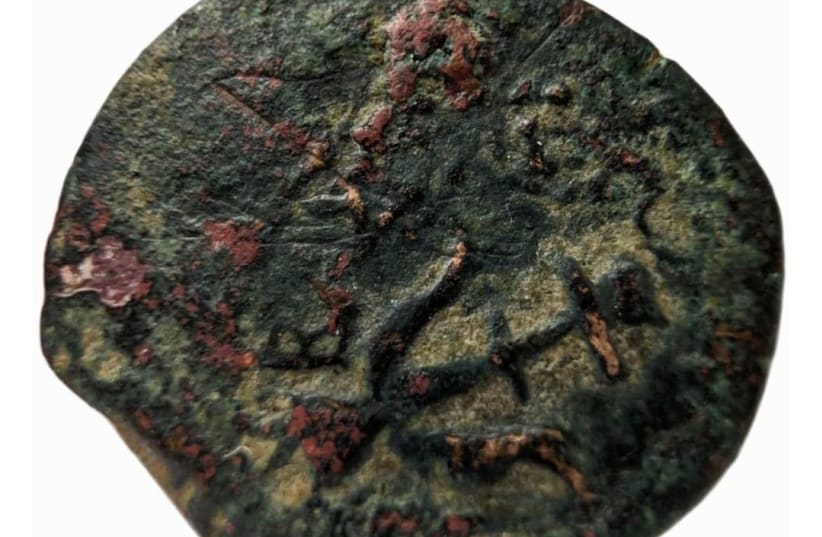2000-year-old Hasmonean coin discovered by child evacuated on Oct.7
While exploring the area around the hotel that he had been evacuated to along the Dead Sea, Nati Toyikar came across an ancient coin dating back to the Hasmonean period
Archaeological activities for evacuees
"Since October 7, we have guides from the educational centers of the Antiquities Authority organizing and conducting activities in hundreds of hotels where evacuees are staying. The participants get a few moments of distraction from the difficult reality and are exposed to the world of antiquities," says Orit Apalo and Einat Kashi from the Antiquities Authority.
"We meet the residents of Kibbutz Magen as part of a wide range of activities carried out among evacuees in the Dead Sea region, and we are happy that the younger generation already knows about the importance of antiquities."
According to Dr. Robert Cole, Head of the Coins Branch at the Antiquities Authority, "the coin that Nati found is a well-known coin of the Hasmonean king and high priest Alexander Janai (104-76 BCE). On the face of the coin appears an anchor, and around it appears an inscription in Greek - "Alexander Basileus," which translates to "(of) Alexander the King." On the back of the coin appears a star with eight rays, surrounded by a crown of kings. Between the rays, you can see an inscription, which appears in small letters. Only a part of it can be deciphered here. It recalls the name and title of the king in ancient Hebrew: [Yohan]n/he/mel/[cha]/."
The Hasmonean rule under Alexander Yanai
Hasmonean rule reached the peak of its power and territorial expansion under Alexander Yanai. As a Jew and an important Hellenistic ruler, he held the dual title of high priest and king - which is a noticeable feature in the inscription on a coin.
The coin was minted in the 80s BCE in very large quantities, and its wide distribution in Israel and neighboring regions indicates the expansion of the kingdom under Yanai's rule. Dr. Cole expands on this archaeological find, stating that "The coins of this type found along the coast of the Dead Sea are evidence of military and the king's conquests against the Kingdom of the Nabatim in Jordan. These coins were used to pay the king's soldiers and to build and strengthen fortresses in the area (such as Masada, Makhvar, Qumran) - and also - to build a fleet of vessels that operated in the Dead Sea. Hence, perhaps, the anchor symbol that appears on the currency."
Pud says we are now at war and must give our support to the IDF to do it's job and prepare to take the fight into Gaza and not continue with our political squabbling.



